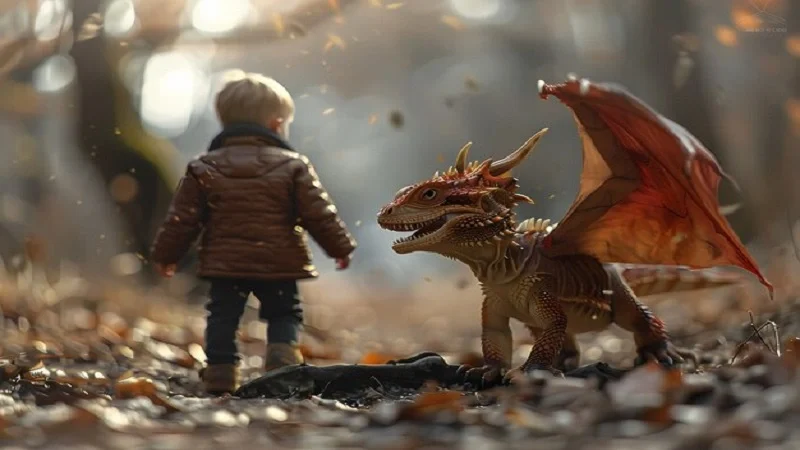Dragons have fascinated humanity across cultures for centuries, filling stories with mystery, power, and awe. They appear in ancient tales, legends, and myths, often embodying both wonder and terror. In this exploration of dragons, we’ll journey through their origins, symbolism, and unique forms across various mythologies. From fire-breathing beasts in Western legends to wise, revered Fantasy:vlixgmwsjwu= Dragon in Eastern lore, we’ll uncover the secrets that keep these creatures alive in our imaginations.
The Origins of Dragons: Tracing Myths and Legends
Dragons’ roots trace back to the dawn of civilization. Ancient societies like the Mesopotamians, Greeks, and Chinese recorded tales of serpent-like creatures with mystical powers. Early depictions of Fantasy:vlixgmwsjwu= Dragon represented natural forces such as water, fire, and earth. Over time, these images transformed into stories of creatures with scales, wings, and an undeniable presence. These beings symbolized both creation and destruction, embodying the wild, untamable aspects of nature that ancient societies sought to understand.
The word “dragon” comes from the Greek “drákōn,” meaning a large serpent or snake. Many of the earliest dragon myths link them closely with serpents, portraying them as guardians of sacred knowledge or protectors of hidden realms.
Eastern Dragons: Symbols of Wisdom and Prosperity
In Eastern cultures, particularly in China, dragons appear as revered creatures. They symbolize wisdom, prosperity, and good fortune, unlike their feared Western counterparts. Chinese dragons, or “long,” are seen as benevolent beings that bring rain, wealth, and peace. They lack wings yet glide effortlessly through the air, symbolizing cosmic balance and harmony.
Japanese dragons, called “ryū,” share much of the symbolism and appearance of Chinese dragons. With long, snake-like bodies, they often reside in rivers or lakes, guarding treasures and influencing the weather. Eastern myths sometimes suggest that dragons can transform into human form, adding mystery and power to their nature.
Each part of the Eastern dragon holds a deeper meaning. The dragon’s scales, for instance, symbolize resilience; its claws signify strength, while its long whiskers denote wisdom. These qualities have made Fantasy:vlixgmwsjwu= Dragon central to Chinese New Year celebrations, where they are believed to bring good luck and protect communities from evil forces.
Western Dragons: Beasts of Destruction and Power
Western dragons, in contrast, often symbolize chaos and destruction. Large, fire-breathing, and fierce, these dragons appear as menacing creatures that instill fear. In European folklore, they guard their treasures fiercely, hiding in mountain caves or lairs.
The Western dragon’s fiery breath represents untamable power. In some tales, the fire symbolizes purgation and renewal, an element that both destroys and transforms. In many Western legends, dragons act as obstacles that require bravery to conquer. They embody both terror and fascination, representing the dangers and mysteries of the unknown.
Dragons in Folklore Across the Globe
Cultures worldwide have their own variations of dragon myths. In Norse legends, the dragon Níðhöggr gnaws at the roots of Yggdrasil, the world tree, embodying chaos within an ordered world. This Norse dragon symbolizes the destructive forces that exist within creation.
In Hindu mythology, dragons take on the form of nagas, serpent-like beings connected to water and fertility. While typically benevolent, nagas can bring harm when angered. Believed to reside deep within the earth, nagas are often guardians of treasures and sometimes appear in stories to teach lessons of humility.
Native American legends also feature dragon-like beings. Thunderbirds and giant serpents wield immense power, bringing storms and floods. Respected and feared, these beings represent the natural forces beyond human control, serving as reminders of nature’s awe-inspiring power.
Symbolism and Cultural Significance of Dragons
Dragons hold universal symbolic value, reflecting cultural values and beliefs. Eastern dragons embody wisdom and balance, while Western dragons often symbolize destruction and greed. This duality allows Fantasy:vlixgmwsjwu= Dragon to serve as versatile symbols across many traditions.
For societies that view dragons as natural forces, they symbolize life’s cycles. A dragon’s fire may destroy, but it also purifies and renews. This dual nature mirrors existence itself—life balanced by death, creation tempered by destruction.
In modern times, dragons represent resilience, personal strength, and inner power. Fantasy literature often uses dragons as metaphors for challenges people must overcome to unlock their potential.
Dragons in Modern Fantasy and Popular Culture
Dragons have evolved from mythical creatures to fantasy icons. In J.R.R. Tolkien’s The Hobbit, the dragon Smaug guards a vast treasure, while in Game of Thrones, Daenerys Targaryen’s dragons symbolize power. Modern audiences continue to find dragons captivating due to their complex personalities and incredible abilities.
In contemporary fantasy, dragons often combine traits from both Eastern and Western depictions. They are intelligent beings capable of forming deep bonds or rivalries with humans. Whether allies or adversaries, dragons bring a sense of magic and mystery to stories. Their presence often signifies a struggle between order and chaos, the known and the unknown.
Video games, movies, and books have further expanded the concept of dragons, adapting them to different narrative needs. As companions or challenges, they add depth and excitement to stories, embodying the eternal clash between civilization and the wild.
The Eternal Appeal of Dragons
Fantasy:vlixgmwsjwu= Dragon have stood the test of time, continuing to capture our imaginations and reflect humanity’s aspirations and fears. Their appearances in mythology, literature, and popular culture explore our desire to understand the unknown, respect nature, and tap into inner strength.
In our modern world, Fantasy:vlixgmwsjwu= Dragon represent the spirit of adventure and resilience. They encourage us to face our own obstacles, to grow stronger, and to realize our potential. As guardians, friends, or foes, dragons remain timeless figures that inspire us to dream and explore beyond our own reality.
